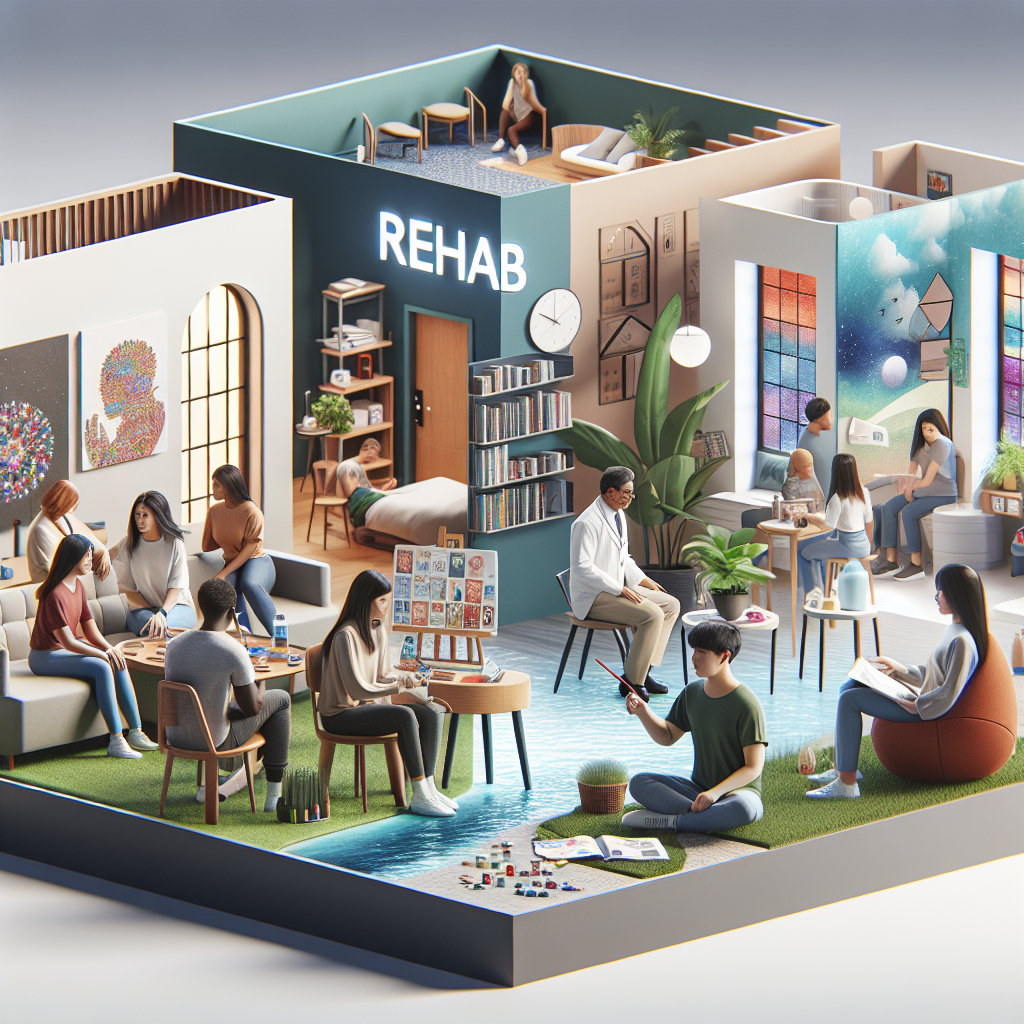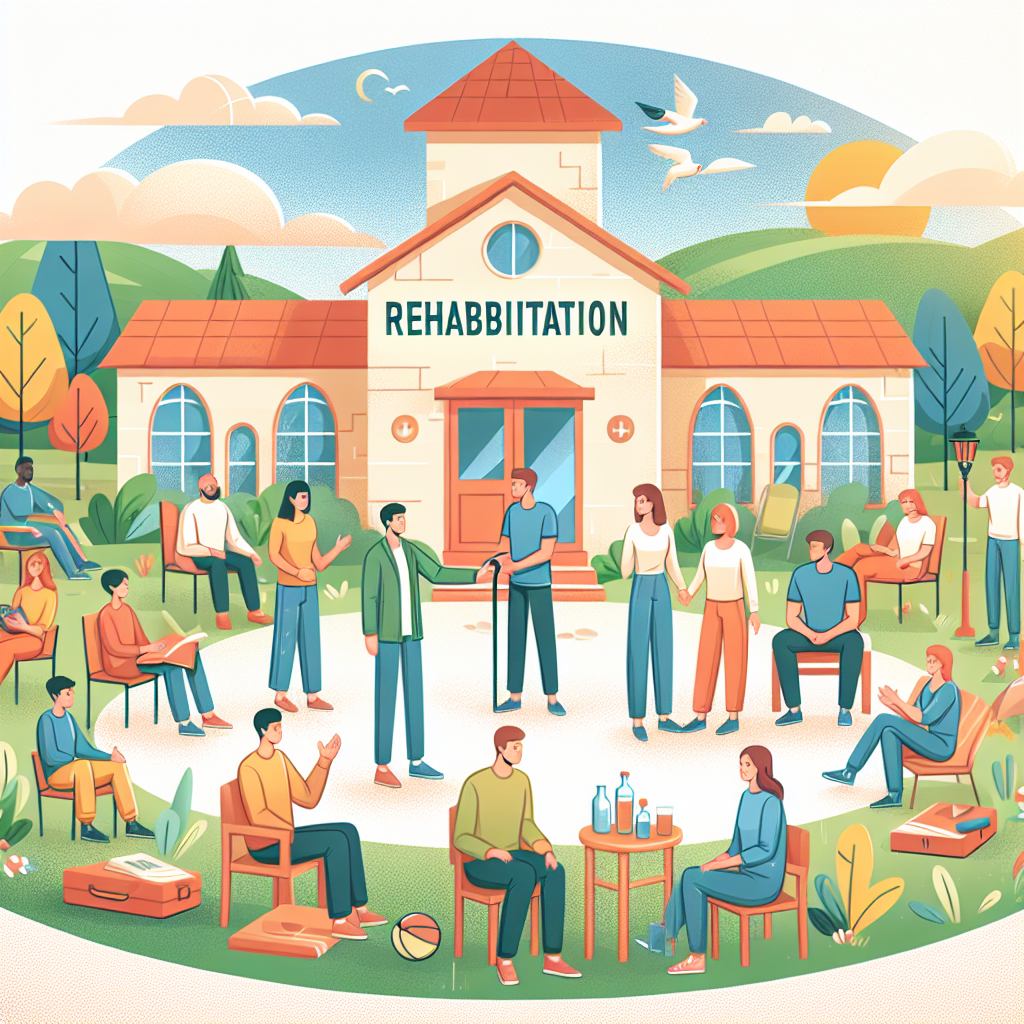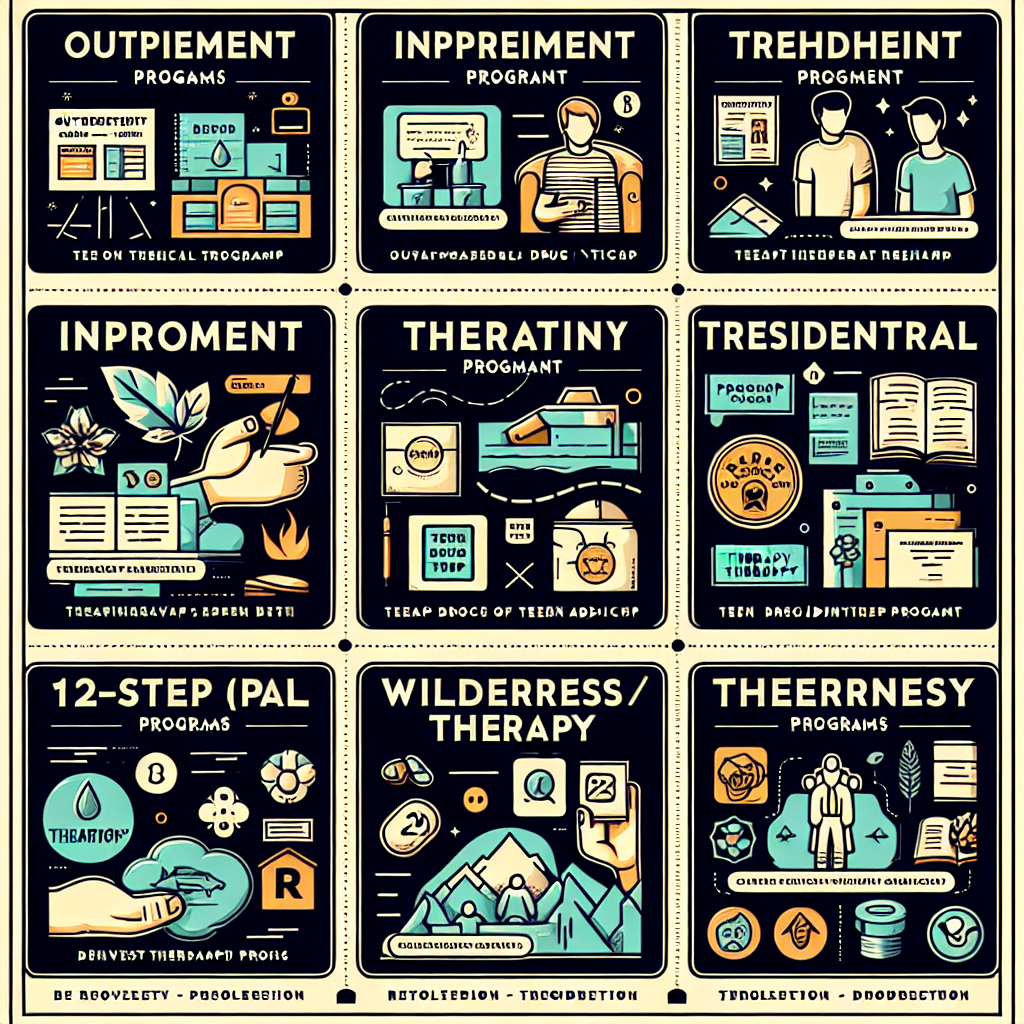-
Table of Contents

“Empowering Teens: Integrating Mental Health into Rehab for a Brighter Future”
Introduction
Rehabilitation programs for teens are increasingly recognizing the critical importance of addressing mental health issues alongside substance abuse or behavioral problems. These programs are designed to provide a holistic approach to recovery, integrating mental health treatment as a core component of the rehabilitation process. By incorporating evidence-based therapeutic interventions, individualized treatment plans, and a supportive environment, rehab programs aim to address the underlying psychological issues that often contribute to a teen’s struggles. This comprehensive approach not only helps in managing symptoms of mental health disorders but also equips teens with coping strategies, emotional regulation skills, and resilience, fostering long-term recovery and overall well-being.
Integrating Cognitive Behavioral Therapy in Teen Rehab Programs
Rehabilitation programs for teens have evolved significantly over the years, recognizing the intricate link between substance abuse and mental health. One of the most effective methods integrated into these programs is Cognitive Behavioral Therapy (CBT). This therapeutic approach not only addresses the symptoms of addiction but also delves into the underlying mental health issues that often accompany it. By incorporating CBT, rehab programs for teens offer a holistic approach to recovery, fostering long-term well-being and resilience.
Cognitive Behavioral Therapy is a structured, time-limited therapy that focuses on identifying and challenging negative thought patterns and behaviors. For teens, this approach is particularly beneficial as it equips them with practical skills to manage their emotions and cope with stressors. The adolescent years are a critical period for mental health, with many teens experiencing anxiety, depression, and other emotional challenges. By integrating CBT into rehab programs, therapists can help teens understand the connection between their thoughts, feelings, and behaviors, empowering them to make positive changes.
One of the key components of CBT is the development of coping strategies. Teens in rehab programs often face a myriad of triggers and stressors that can lead to relapse. Through CBT, they learn to recognize these triggers and develop healthy ways to cope with them. This might include techniques such as mindfulness, relaxation exercises, and problem-solving skills. By practicing these strategies in a supportive environment, teens build confidence in their ability to handle difficult situations without resorting to substance use.
Moreover, CBT encourages teens to set realistic and achievable goals. This goal-setting process is crucial in rehab programs as it provides teens with a sense of direction and purpose. By breaking down larger goals into smaller, manageable steps, teens can experience a sense of accomplishment and progress. This not only boosts their self-esteem but also reinforces their commitment to recovery. The collaborative nature of CBT, where therapists and teens work together to set and achieve goals, fosters a sense of partnership and trust, which is essential for effective therapy.
In addition to individual therapy sessions, CBT is often incorporated into group therapy within teen rehab programs. Group therapy provides a supportive community where teens can share their experiences and learn from one another. This peer support is invaluable, as it helps teens realize they are not alone in their struggles. Group CBT sessions also offer opportunities for role-playing and other interactive activities, which can enhance learning and reinforce new skills.
Furthermore, family involvement is a critical aspect of CBT in teen rehab programs. Family dynamics can significantly impact a teen’s recovery journey. By involving family members in therapy sessions, therapists can address any dysfunctional patterns and improve communication within the family. This holistic approach ensures that the teen’s support system is strong and conducive to their recovery.
The integration of Cognitive Behavioral Therapy in teen rehab programs is a testament to the evolving understanding of addiction and mental health. By addressing the root causes of substance abuse and equipping teens with practical skills, CBT offers a comprehensive path to recovery. The inspirational stories of teens who have successfully navigated their recovery journey through CBT highlight the transformative power of this therapeutic approach. As rehab programs continue to incorporate CBT, they pave the way for a brighter, healthier future for countless teens.
The Role of Family Therapy in Teen Rehab and Mental Health Treatment
Family therapy plays a pivotal role in the rehabilitation programs for teens, particularly when addressing mental health issues. The integration of family therapy into these programs is not merely an adjunct but a core component that significantly enhances the overall effectiveness of treatment. Understanding the dynamics within a family can provide crucial insights into the root causes of a teen’s struggles, whether they stem from substance abuse, behavioral issues, or mental health disorders. By involving the family, therapists can create a more holistic and supportive environment that fosters long-term recovery and well-being.
One of the primary reasons family therapy is so effective in teen rehab programs is that it addresses the systemic nature of many issues. Teens do not exist in isolation; their behaviors and mental health are often influenced by family interactions, communication patterns, and unresolved conflicts. Through family therapy, these underlying issues can be brought to light and addressed in a constructive manner. This therapeutic approach helps to break negative cycles and establish healthier ways of relating to one another, which can be transformative for the entire family unit.
Moreover, family therapy provides a platform for parents and siblings to express their feelings and concerns in a safe and structured environment. This open communication is essential for healing, as it allows family members to understand each other’s perspectives and work together towards common goals. For instance, parents may learn more effective ways to support their teen, while siblings can gain a better understanding of the challenges their brother or sister is facing. This collective effort can significantly reduce feelings of isolation and stigma, which are often barriers to recovery.
In addition to improving communication, family therapy also focuses on building resilience and coping strategies. Families are taught skills to manage stress, resolve conflicts, and support each other in healthy ways. These skills are invaluable not only during the rehab process but also in preventing relapse and promoting long-term mental health. By empowering families with these tools, therapists help create a stable and nurturing environment that is conducive to sustained recovery.
Furthermore, family therapy can help to rebuild trust, which is often eroded when a teen is struggling with mental health issues or substance abuse. Trust is a fundamental component of any healthy relationship, and its restoration can be a powerful catalyst for change. Through consistent and honest communication, family members can begin to rebuild their relationships on a foundation of mutual respect and understanding. This renewed trust can provide the emotional support that teens need to navigate the challenges of recovery.
The inspirational aspect of family therapy lies in its ability to transform not just the individual teen, but the entire family. It offers a path to healing that acknowledges the interconnectedness of family members and leverages their collective strength. Families who engage in therapy together often emerge stronger, more cohesive, and better equipped to face future challenges. This transformation can be a source of hope and inspiration for other families facing similar struggles.
In conclusion, the role of family therapy in teen rehab and mental health treatment cannot be overstated. It addresses the systemic nature of issues, improves communication, builds resilience, and helps to rebuild trust. By involving the family in the therapeutic process, rehab programs can create a more supportive and effective environment for recovery. This holistic approach not only benefits the teen but also strengthens the entire family, offering a beacon of hope and inspiration for a brighter future.
Q&A
1. **Question:** How do rehab programs for teens address co-occurring mental health disorders?
**Answer:** Rehab programs for teens often incorporate integrated treatment plans that address both substance use disorders and co-occurring mental health disorders through a combination of therapy, medication management, and holistic approaches.
2. **Question:** What types of therapy are commonly used in teen rehab programs to support mental health?
**Answer:** Common types of therapy used in teen rehab programs include Cognitive Behavioral Therapy (CBT), Dialectical Behavior Therapy (DBT), family therapy, and group therapy sessions to help teens develop coping skills and address underlying mental health issues.
Conclusion
Rehab programs for teens incorporate mental health treatment by integrating comprehensive therapeutic approaches that address both substance abuse and underlying psychological issues. These programs often include individual and group therapy, cognitive-behavioral therapy (CBT), family counseling, and psychiatric care to treat co-occurring disorders such as depression, anxiety, and trauma. By providing a holistic treatment plan that focuses on emotional well-being, coping strategies, and life skills, these programs aim to foster long-term recovery and resilience in adolescents.



